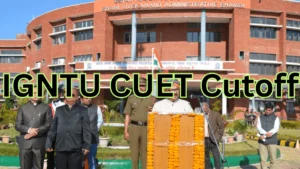Diwali, known as the Festival of Lights, is one of India’s most celebrated and cherished festivals. It symbolizes the victory of light over darkness, good over evil, and knowledge over ignorance. Traditionally, Diwali marks the return of Lord Rama to Ayodhya after 14 years of exile, as well as the triumph of Lord Krishna over the demon Narakasura. The festival involves lighting oil lamps, bursting fireworks, and sharing sweets, bringing families and communities together in joy and festivity. Beyond its religious significance, Diwali embodies themes of renewal, gratitude, and the spirit of giving, fostering warmth and unity among people.
Why we celebrate Diwali?
Did you know Why do we celebrate Diwali? You are at the right place. The festival of lights, Diwali is widely observed throughout India. But very few of us know why do we celebrate Diwali.
Diwali, also known as Deepawali, is celebrated in the Kartik month and typically lasts for five days, beginning with Dhanteras and continuing with Govardhan Puja, Bhai Dooj, Lakshmi Pujan, Narak Chaturdashi, and Choti Diwali. Diwali, which is celebrated by lighting clay lights in every crevice, derives from the Sanskrit words deep (lamp) and wali (row).
Why we celebrate diwali in english
One of the biggest and most renowned festivals, Diwali is mostly celebrated in India. Diwali is a Hindu event that honors happiness, success, and harmony. Typically, this Hindu holiday occurs in October or November. It is extensively commemorated as a national holiday in India and other nations throughout the world.
Numerous stories and myths surround this holiday. It honors Lord Rama’s defeat of Ravana and his triumphant return to his home after a 14-year exile. The forces of good triumph over the forces of evil are actually represented by this event.
People also pay homage to Lord Ganesha and Goddess Lakshmi on Diwali. The Destroyer of Obstacles, Lord Ganesha, is admired for his wisdom and intelligence. Goddess Lakshmi is also worshipped for wealth and prosperity on the occasion of Diwali. In honor of this “New Year,” merchants open fresh ledgers.
Best Diwali Wishes, Quotes in English & Hindi
Check ways why we are celebrating Diwali
Choti Diwali, also known as Naraka Chaturdashi, is observed on the second day of the Diwali festival. The main festivity is on the third day. Lakshmi, the goddess of wealth, is highly revered on this day. People dress in new clothing, perform Puja, then celebrate by lighting diyas and setting off a few fireworks. Govardhan Puja, also known as Padva, is celebrated on the fourth day of Diwali. It is stated that on this day, Lord Krishna vanquished Indra by raising the enormous Govardhan Mountain. People create a miniature hillock that represents Govardhan out of cow dung and reveres it. Bhai Dooj is observed on the fifth day of the Diwali festivities. Sisters visit their brother’s home on this day and conduct a “tilak” ceremony.
On the day of Diwali, there are frenzied celebrations taking place all throughout the nation. People invite their relatives and close friends. On this day, desserts are prepared and shared with friends and family. Everyone is wearing brand-new attire. Young people dress up in their fanciest and most glamorous attire.
On Diwali, people enjoy themselves greatly. Despite being a Hindu holiday, people from all backgrounds gather to celebrate the festive occasion with fireworks and crackers. People burn earthen oil lamps and use lights of many colors to beautify their homes.
Reasons to Celebrate Diwali
Even though Diwali is regarded as a Hindu holiday, it is observed in a variety of ways by many communities all over the nation. The spiritual meaning of Deepawali, which is “winning of light over darkness, good over evil, and wisdom over ignorance,” remains the same wherever the holiday is celebrated. See the reasons why we do celebrate Diwali.
- According to the Ramayana, after spending 14 years in exile and vanquishing the demon king Raavana, Lord Rama, his wife Sita, and brother Laxmana, at last, returned to Ayodhya. He goes back to his house for Diwali.
- During the Treta Yug, Lord Vishnu took the form of Vamana Avatar and deceived King Mahabali into giving up all of his wealth in order to save Goddess Lakshmi from the evil king. Thus, the meaning of Diwali is once more emphasized: Good always prevails over Evil.
- In the Mahabharata, the five Pandava brothers were exiled for 12 years by the Kauravas after being deceived into losing a wager in gaming. The Pandavas are said to have returned to Hastinapur on the night of Kartik Amavasya on Diwali.
- Diwali is a significant event in Indian history as well as having mythical and religious significance. From 56 to 55 BCE, India was ruled by the great King Vikramaditya who was a knowledgeable leader and a well-known warrior. People in his kingdom lit lamps and set off fireworks to mark his coronation, and since then, Diwali is also observed to pay homage to the great king.
- The most widely accepted version holds that Diwali commemorates the day Goddess Lakshmi was conceived from Samudra Manthan, the gods and demons’ churning of the cosmic ocean of milk. On Diwali eve, Lakshmi picked Vishnu as her spouse, and the two were joined in sacred matrimony.
- In the Sikh religion, Diwali commemorates the release of Guru Hargobind by the Mughal emperor Jehangir.
- The Jain religion observes the Diwali festival to commemorate the day Mahavira’s soul attained Nirvana.
- The Diwali festival marks the beginning of a new year in various western Indian states, such as Gujarat.
- Diwali is observed as Kali Puja in Eastern India, particularly in West Bengal, in honor of Goddess Kali, who is reputed to have gone on a devastating rampage to purge the earth of all demons.
Also Check: Diya Decoration Ideas for Diwali
Why we celebrate diwali the Festival of Lights
In India Deepavali literally translates to “the festival of lights” and means “a row of lights,” with “deep” standing for “light” and “avali” for “row.”The mythology around Diwali differs depending on the area. However, Diwali is a holiday that commemorates Lord Rama’s return to Ayodhya after a 14-year exile and victory over Lankan ruler Ravana. He was accompanied by his wife Sita and brother Lakshman at the time. The people of Ayodhya lit earthen diyas throughout the entire kingdom to celebrate Lord Rama’s return from exile
It is known that Diwali is a “Festival of Colors.” Earthen oil lamps are lit, and people adorn their residences with sparkling lights of all shapes and sizes at their front doors and fences. Sparklers, rockets, flower pots, fountains, fireworks, and different sorts of fireworks are all favorites among kids. Beautiful rangoli patterns that are typically made of flower petals, colored rice, and sand are used to beautify the flooring of the home.
Also Check:Easy Rangoli Designs for Diwali
Why we celebrate diwali in Hindi
भले ही दिवाली को हिंदू अवकाश के रूप में माना जाता है, यह पूरे देश में कई समुदायों द्वारा विभिन्न तरीकों से मनाया जाता है। दीपावली का आध्यात्मिक अर्थ, “अंधेरे पर प्रकाश की जीत, बुराई पर अच्छाई और अज्ञान पर ज्ञान की जीत” है, जहां भी छुट्टी मनाई जाती है, वही रहता है। जानिए हम दिवाली क्यों मनाते हैं।
- रामायण के अनुसार, 14 वर्ष वनवास में बिताने और राक्षस राजा रावण को परास्त करने के बाद, भगवान राम, उनकी पत्नी सीता और भाई लक्ष्मण आखिरकार अयोध्या लौट आए। वह दिवाली के लिए अपने घर वापस चला जाता है।
- त्रेता युग के दौरान, भगवान विष्णु ने वामन अवतार का रूप धारण किया और देवी लक्ष्मी को दुष्ट राजा से बचाने के लिए राजा महाबली को अपनी सारी संपत्ति देने के लिए धोखा दिया। इस प्रकार, दिवाली के अर्थ पर एक बार फिर जोर दिया गया है: बुराई पर हमेशा अच्छाई की जीत होती है।
- महाभारत में, पांचों पांडव भाइयों को जुआ खेलने में दांव हारने के धोखे से कौरवों द्वारा 12 साल के लिए निर्वासित कर दिया गया था। कहा जाता है कि दिवाली पर कार्तिक अमावस्या की रात को पांडव हस्तिनापुर लौटे थे।
- भारतीय इतिहास में दिवाली एक महत्वपूर्ण घटना होने के साथ-साथ पौराणिक और धार्मिक महत्व भी रखती है। 56 से 55 ईसा पूर्व तक, भारत पर महान राजा विक्रमादित्य का शासन था जो एक जानकार नेता और एक प्रसिद्ध योद्धा थे। उनके राज्य में लोगों ने उनके राज्याभिषेक को चिह्नित करने के लिए दीये जलाए और आतिशबाजी की, और तब से, महान राजा को श्रद्धांजलि देने के लिए दिवाली भी मनाई जाती है।
- सबसे व्यापक रूप से स्वीकृत संस्करण यह मानता है कि दीवाली उस दिन की याद दिलाती है जब देवी लक्ष्मी की कल्पना समुद्र मंथन से हुई थी, देवताओं और राक्षसों के दूध के ब्रह्मांडीय महासागर के मंथन से। दीवाली की पूर्व संध्या पर, लक्ष्मी ने विष्णु को अपने जीवनसाथी के रूप में चुना, और दोनों पवित्र विवाह में शामिल हो गए।
- सिख धर्म में, दीवाली मुगल सम्राट जहांगीर द्वारा गुरु हरगोबिंद की रिहाई की याद दिलाता है।
- जैन धर्म महावीर की आत्मा को निर्वाण प्राप्त करने के दिन को मनाने के लिए दिवाली त्योहार मनाता है।
- दिवाली का त्यौहार गुजरात जैसे विभिन्न पश्चिमी भारतीय राज्यों में एक नए साल की शुरुआत का प्रतीक है।
- दीवाली को पूर्वी भारत में काली पूजा के रूप में मनाया जाता है, विशेष रूप से पश्चिम बंगाल में, देवी काली के सम्मान में, जो सभी राक्षसों की पृथ्वी को शुद्ध करने के लिए एक विनाशकारी क्रोध पर जाने के लिए प्रतिष्ठित हैं।
Did you know What are Green Crackers?
Why do we celebrate diwali short answer
We celebrate Diwali as a festival of lights, symbolizing the victory of light over darkness and good over evil. It is traditionally associated with the return of Lord Rama to Ayodhya after 14 years of exile and his victory over the demon king Ravana. Diwali also signifies wealth and prosperity, as it honors the goddess Lakshmi, the deity of wealth.









 [Live Updates] NTA CUET Undergraduate Re...
[Live Updates] NTA CUET Undergraduate Re...
 IGNTU CUET Cutoff 2025, Check Category W...
IGNTU CUET Cutoff 2025, Check Category W...
 CGBSE Revaluation Result 2025 Announced ...
CGBSE Revaluation Result 2025 Announced ...









